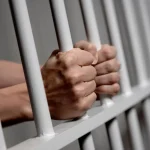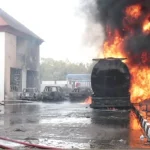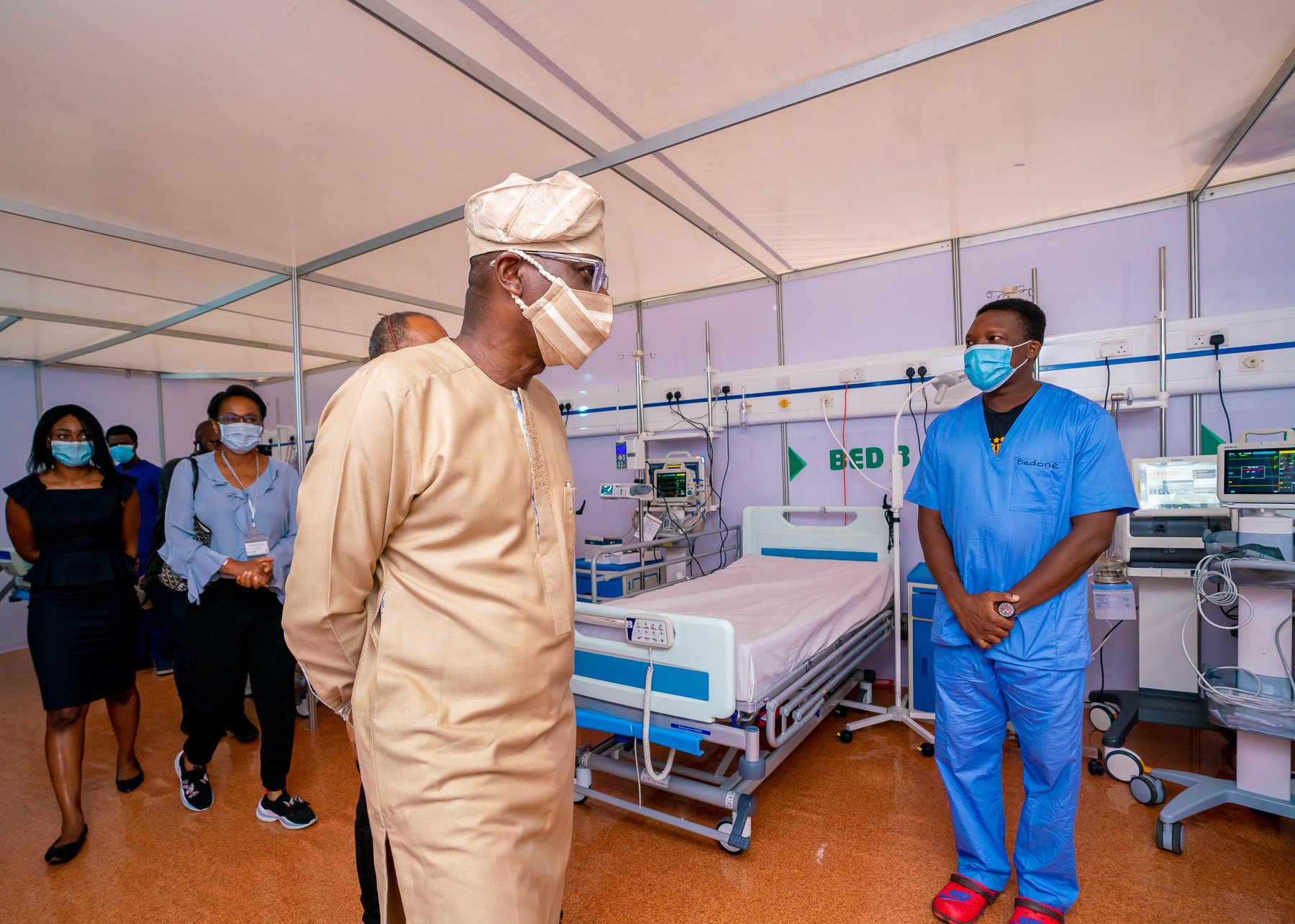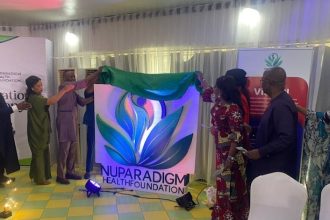The Lagos State Government has reportedly closed down its 554-bed isolation centres following the decline in COVID-19 cases in the state.
Reports said the need to seal the facilities was also spurred by the fact that Nigerians had opted for home treatment than present themselves at COVID-19 test centres.
This was said to have compelled the state government to recall the frontline workers in the affected facilities. While some were consequently decommissioned, some others were redeployed to various infectious disease wards at the Mainland Hospital in Yaba.
Reliable sources told Saturday PUNCH that except for the Infectious Disease Hospital in Yaba which is active, the remaining COVID-19 treatment venues, including the Lagos State University Teaching Hospital, Agidingbi, Onikan, Gbagada, Indo and Landmark isolation centres have been shut. The Indo Isolation Centre at Ajao Estate was the last centre to be closed on March 30.
One of our correspondents paid a visit to the IDH facility last week and discovered that unlike the usual bustling around the isolation centre, there was a lull in activities.
A source told Saturday PUNCH that some workers especially at the Indo Centre, which comprised regular caregivers, paid by the Health Service Commission, were asked to report back to IDH.
The IDH isolation centre with a bed space of 284, arguably the biggest and most effective in the state, presently has five patients.
According to him, most of the over 70 volunteer frontline health workers recruited in January to manage patients with severe respiratory challenges are presently being decommissioned due to decline in cases.
The IDH, situated in the Mainland Hospital, is a purpose-built facility equipped with intensive care unit capability in response to any pandemic. It originally had 124-bed capacity but a new state-of-the-art ICU with 160-bed space was erected on the premises by the Coalition Against COVID-19, a private sector-led organisation established to assist the government in combating the disease.
A frontline caregiver in the facility confirmed the report, adding that there were more cases between January and early March before the recent decline.
The health worker said, “In January, there were over 100 patients in the CACOVID ward alone and there were other patients in other wards, so you can imagine the kind of stress we went through in managing the patients. Now, we juggle managing COVID-19 and HIV/TB patients in the last one month. We the frontline workers are also not spared in terms of fatalities. A caregiver was brought into IDH from Apapa General Hospital who did not survive it. Another one brought here in critical condition from Gbagada General Hospital also didn’t make it.
“Our job here is quite challenging. The only working equipment that the government provided for us are just gloves and face masks. Nothing else! What we are demanding is that now that COVID-19 cases have gone down the Lagos State should pay us our three-month remuneration and allow us to go.”
The physician lamented that as the number of cases continued to decline, with only five patients left at the facility, many health workers had been decommissioned without payment while some others were being redeployed to take care of tuberculosis and HIV patients on admission.
A senior CACOVID official who pleaded anonymity confirmed the suspension of operation in the isolation centres, noting that a handful of the flagship hospitals were still allowed to run a holding bay.
The official added, “Aside from IDH, all the isolation centres are closed, but hospitals such as Gbagada, LASUTH, LUTH and Federal Medical Centre at Ebute Metta still have their holding bays or COVID-19 wards as most people call it. These are for the treatment of people with unusual infectious disease and suspected cases of COVID-19.”
The CACOVID official also confirmed earlier reports that only five patients are still on admission in the IDH facility, adding, “It is true that we still have five patients on admission, but that doesn’t mean we don’t record fresh COVID-19 positive cases. Many patients are often requested to isolate themselves at home to save cost in terms of accommodation, treatment and feeding for all.
“From experience, we know some of them recover within five days of self-isolation, except those who have underlying illnesses.”
Asked if the ongoing vaccination had something to do with the drop in the number of cases, the official disclosed that it was unlikely, noting that although vaccination was a priority to the state, there were strong indications that the low incidence of COVID-19 meant that the state was gradually experiencing herd immunity.
The official decried the poor compliance with safety protocols, adding, “If I have to be honest with you, we have not been carrying out COVID-19 tests like before. How can you discover many positive cases when you are not testing enough people?”
The official also expressed reservations over the non-payment of IDH health workers’ three-month special allowances, describing it as unfair.
The CACOVID official added, “That was how they also messed up the payment of last year’s volunteer health workers. Many of them have reported the incident to us. We know the money is there but certain people have their eyes on it. They would always hide under paper works and office bureaucracy to avoid paying them. We are familiar with the rhetoric.”











